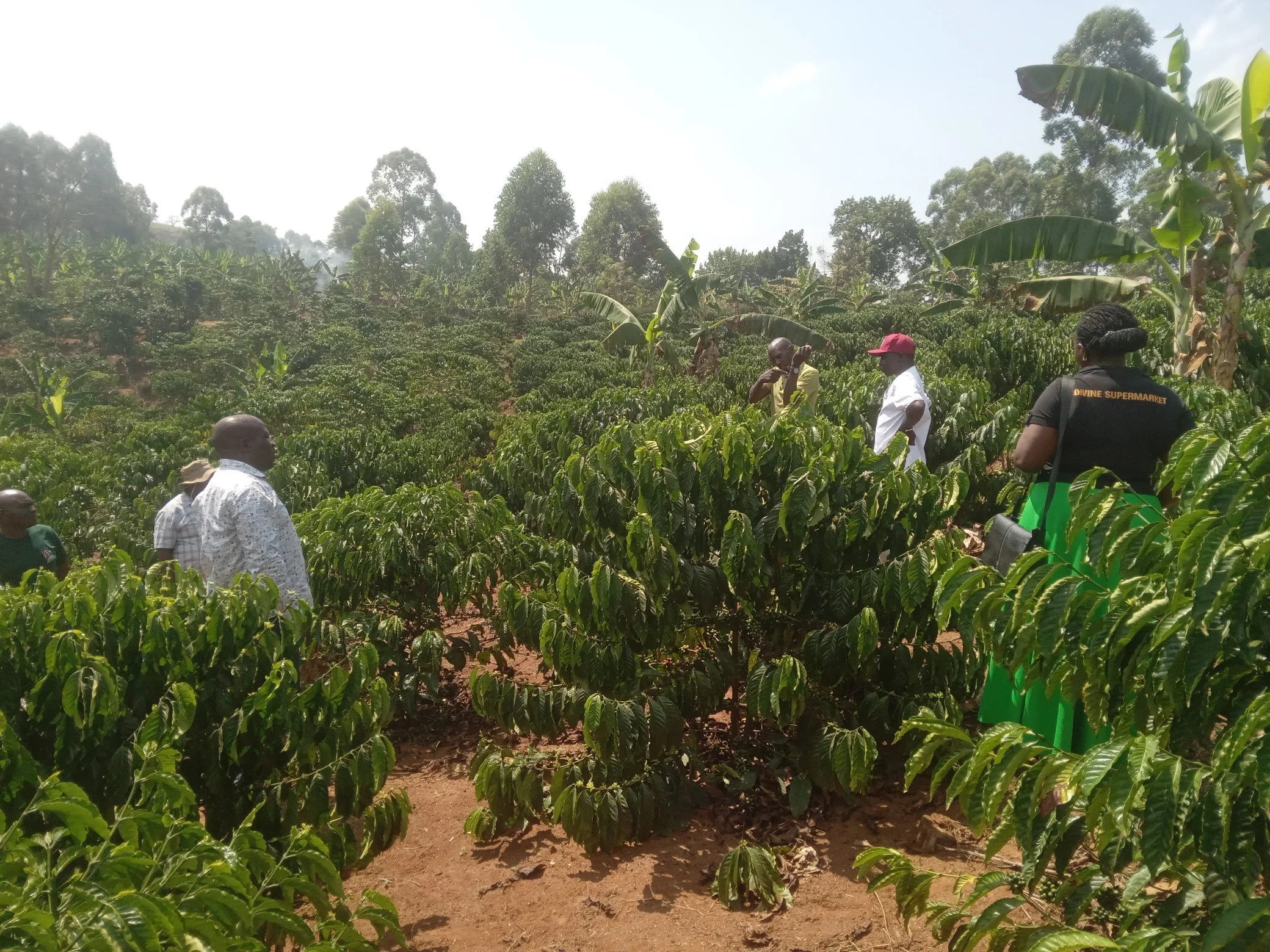Ngũgĩ wa Thiong'o: From Coffee Farms to Chronicling Land and Exploitation in Africa
Ngũgĩ wa Thiong’o, the literary giant who passed away aged 87, leaves behind a legacy that is inextricably tied to the soil of East Africa—literally and metaphorically.
Born in 1938 in colonial Kenya, Ngũgĩ grew up in Limuru, a region surrounded by sprawling coffee farms. These early life experiences among low-income agricultural workers would shape the themes that defined his six-decade literary career: land ownership, displacement, and economic exploitation.
Even though Ngugi wa Thiong'o didn’t own any land, his work frequently explores the themes of land ownership, displacement, and economic exploitation, often using farms and agricultural settings as symbolic representations of power dynamics and social injustice.
Ngũgĩ’s novels—Weep Not, Child, A Grain of Wheat, Petals of Blood, among others—reveal how colonial and post-colonial injustices often revolved around land, especially fertile farmlands used for cash crops like coffee and tea.
These themes remain relevant today, as coffee farms across East Africa continue to symbolize both economic opportunity and historical inequality.
A Childhood Rooted in Coffee Fields
Ngũgĩ's formative years were steeped in the rhythms of farm life. His parents, like many in Limuru, toiled on coffee farms under exploitative colonial structures that privileged British settlers over indigenous workers. His family’s sacrifices enabled him to attend Alliance High School, but his education didn’t shield him from the brutalities of colonial rule.
Returning home from school one term, Ngũgĩ found his entire village razed by the colonial government. His relatives had been sent to detention camps as part of the crackdown on the Mau Mau uprising, a freedom movement that shook British colonialism in the 1950s.
The trauma of that loss—and the murder of his deaf brother Gitogo by a British soldier—burned into Ngũgĩ’s consciousness, influencing his lifelong exploration of how land and power intersect.
Ngugi’s parents, like many in Limuru, toiled on coffee farms under exploitative colonial structures that privileged British settlers over indigenous workers. Image: Courtesy
Farms as Symbols of Struggle in His Work
In Weep Not, Child (1964), Ngũgĩ’s debut novel and the first English-language novel by an East African writer, the land is not just a setting but a battleground. The story captures the displacement of rural communities during the Mau Mau uprising, with homes and farms destroyed under colonial orders.
The protagonist’s dreams of education and a better life are derailed by the violent politics surrounding land rights.
A Grain of Wheat (1967) deepens this exploration, portraying how Kenyan villagers navigate loyalty, betrayal, and sacrifice in the lead-up to independence. The land is central to these struggles, both as a source of identity and as contested territory in the fight against colonialism.
Petals of Blood (1977), Ngũgĩ’s last novel written in English before he transitioned to writing in Kikuyu, takes the critique further. Here, post-independence leaders are shown to perpetuate the same exploitation they once opposed.
Coffee and other export crops become symbols of how new African elites and foreign investors conspire to enrich themselves at the expense of rural farmers and workers.
In his essay “Northlands saga and lessons from Ngũgĩ, Marx and Fanon”, he dissects the collapse of Northlands farm, a massive agricultural estate, to illustrate how post-colonial mismanagement and capitalist greed continue to disempower farm workers. The land, once the source of life and labor, becomes a backdrop for betrayal.
Ngugi and his son. Image: Courtesy
The Broader East African Context
Ngũgĩ’s insights extend beyond Kenya, resonating across East Africa where coffee farming remains a key economic activity. From Ethiopia to Uganda to Tanzania, smallholder farmers face challenges that echo those in Ngũgĩ’s novels—foreign ownership of land, unfair pricing, and poor working conditions.
Despite the global demand for East African coffee, many farmers remain in poverty, their toil enriching exporters and international brands. Just as Ngũgĩ depicted in Petals of Blood, the promises of independence have often been replaced by new forms of economic control.
A Literary Legacy of Resistance
Ngũgĩ’s life was marked by defiance. In 1977, the same year he changed his name from James Ngugi to Ngũgĩ wa Thiong’o, he was imprisoned for his co-authored play Ngaahika Ndeenda (I Will Marry When I Want), which criticized class inequality. While in jail, he wrote his first Kikuyu-language novel, Devil on the Cross, on toilet paper. This act became a symbol of artistic resistance.
Even in exile—first in the UK and later the US—Ngũgĩ remained a fierce advocate for decolonizing African literature and minds. His seminal essay collection Decolonising the Mind challenges African writers to embrace their indigenous languages and reject cultural imperialism.
A Farewell to a Voice of the Soil
Ngũgĩ’s passing marks the end of an era, but his voice remains rooted in the African landscape. He gave voice to the voiceless—farmers, workers, women, and children—who lived and died on the margins of coffee estates and colonial histories.
His call was clear: the land must not only feed the body, but also nourish justice, dignity, and freedom.
As East Africa continues to wrestle with issues of land reform, food security, and economic justice, Ngũgĩ’s work offers both a mirror and a map—a reminder that until the land is truly free, neither are its people.


